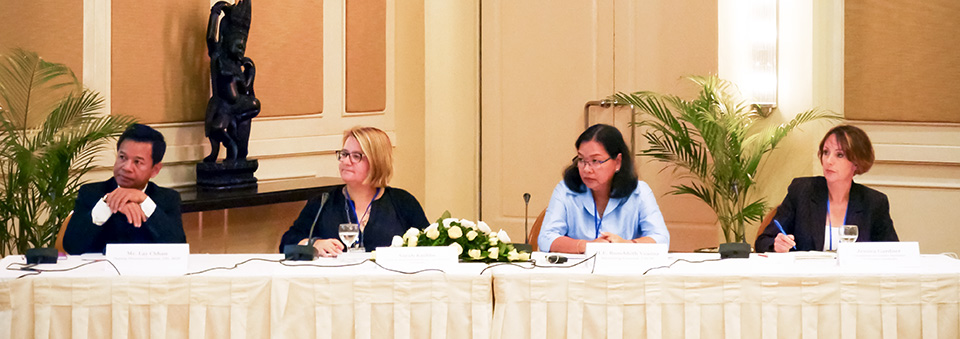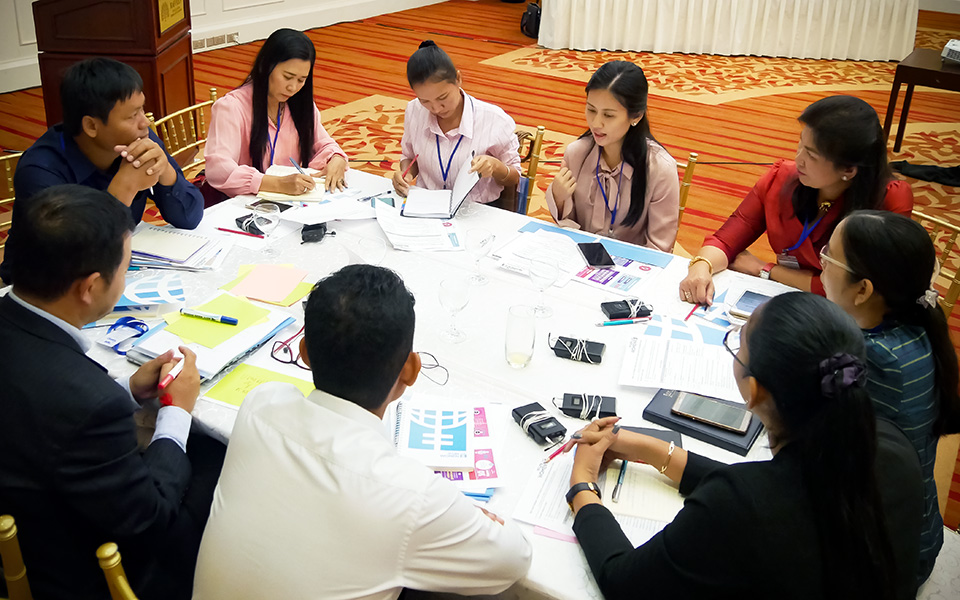UN Women promotes use of gender statistics for sustainable development in Cambodia
Date:
Author: Leng Sreynich
Phnom Penh, Cambodia — Members of civil society groups and of the Government are now better able to produce and use statistics to advance women’s rights. Thanks to trainings organized by UN Women.A total of about 90 people participated in the trainings, held on 25 October for civil society groups and on 26 October for high-level Government officials.
Jessica Gardner, the UN Women consultant who led the trainings, said she hoped that all groups would give greater attention to gender-related statistics, which she said are increasingly important.

The workshops discussed Cambodia’s achievements on gender-related statistics and the limitations in the capacity of policymakers and others to create conditions where the data can be generated, made accessible and analyzed for policies and programmes. They highlighted how such statistics are used in implementing, monitoring and reporting on the United Nations Sustainable Development Goals for 2030. They identified steps to strengthen these statistics, and encouraged high-level decision-makers to buy into the effort.
Sarah Knibbs, Acting Country Representative of UN Women Cambodia, said it was time to be more literate about what data are available and how they could be used.

“As people working on gender, we know that there’s usually a big gap in employment between men and women, but we need data to really understand that, and talking about men and women is not enough,” she said. “We need to understand about equality, discrimination, marginalization, groups who have been left behind, sexual orientation and gender identity, disability, domestic violence, poverty and all kinds of different dimensions. So we need gender statistics to help our understanding to be much sharper, to look at data we already have and what new data we might need to collect.”
Eng Chandy, Advocacy and Networking Program Manager of Gender and Development for Cambodia, said, “I now can identify the gaps in gender statistics that I need for developing my program and also where to get information regarding these challenges as well as resources to help.”
Dim Samphors, a gender and development officer of Development and Partnership in Action Cambodia, said she learned that having clear and reliable gender-related statistics was very important for understanding progress on gender issues and for designing projects to achieve Sustainable Development Goal 5 on gender on equality and empowerment of women and girls.
She said civil society groups such as hers can work together to improve these statistics, and she noted that Cambodia will conduct the national census and socioeconomic survey next year.